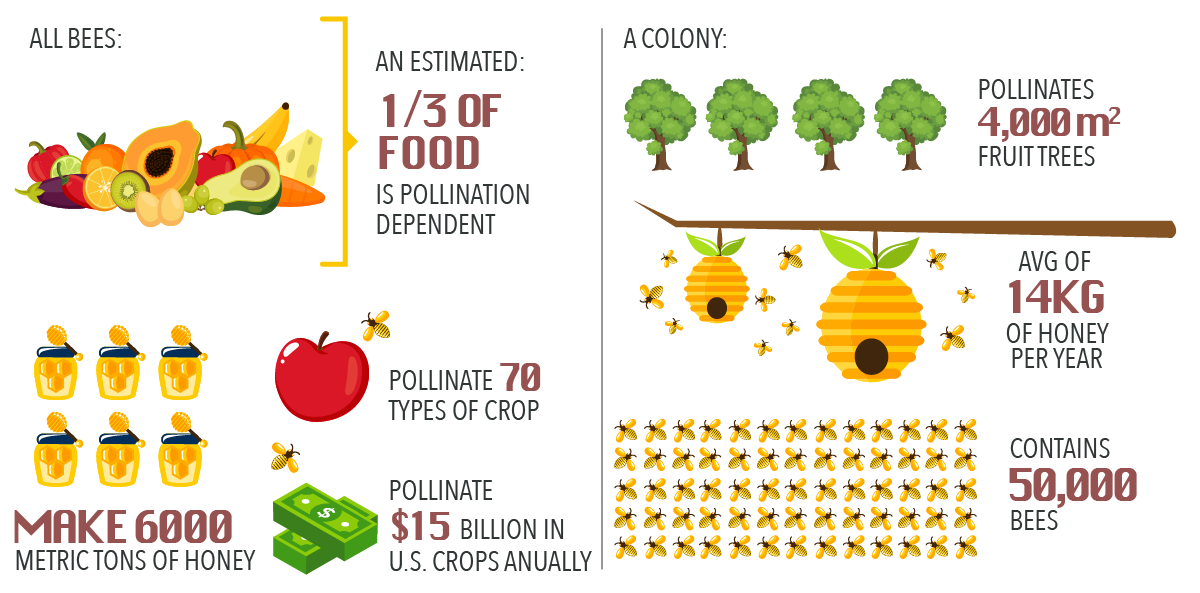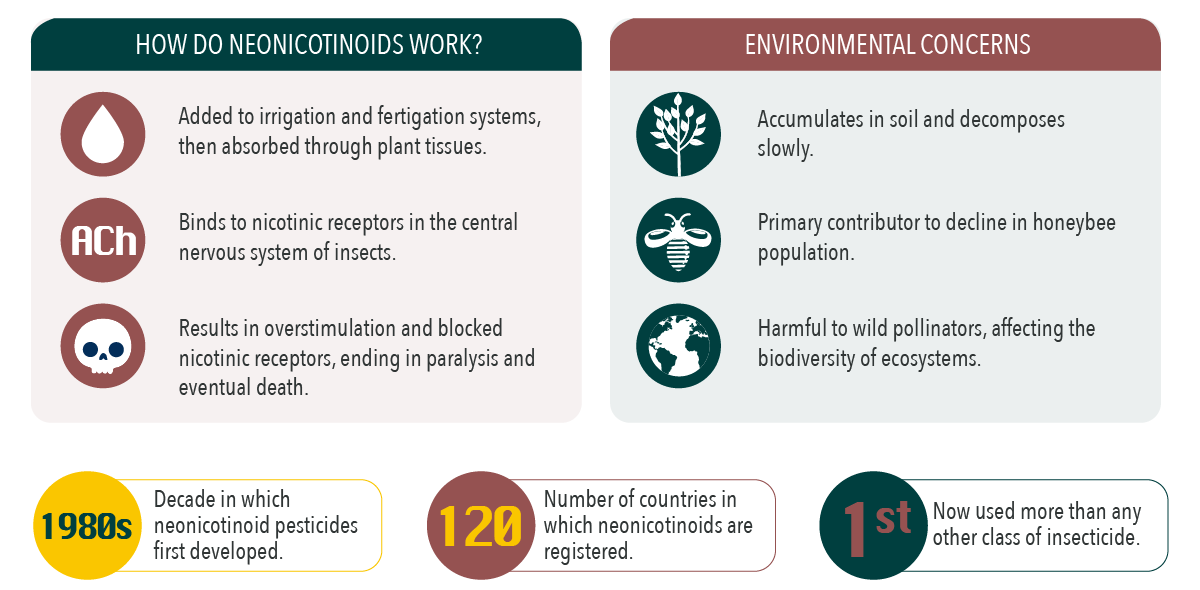One-third of the world‘s food supply relies on pollinators such as bees. Across the globe, 70 of the top 100 food crops supply 90% of the world’s nutrition. These crops are pollinated by bees, with honeybees alone being responsible for billions of dollars in crop value every year. Bees play a critical role in preserving and maintaining the world’s ecosystems and help promote biodiversity through pollination.

Source: BBC
With the world’s population expected to reach 10 billion by 2050, the global community is under increasing pressure to find the right solutions to feed the world – and bees are among farmers’ best allies to efficiently grow crops. The increase in demand for pollinators in our agricultural system has come at a time when their numbers are in decline. Why? A changing climate and an agricultural system reliant on toxic chemicals pose major threats to the global bee population.
The proliferation of chemicals in agriculture since the first Green Revolution has led to an overreliance on synthetic pesticides such as neonicotinoids. The Natural Resources Defense Council (NRDC) points to the use of neonicotinoids as one of the main threats to bees, while The European Food Safety Authority (EFSA) published a study earlier this year confirming that neonicotinoids have directly impacted the population of honeybees and other wild bee species. The toxic chemicals in neonicotinoids were found to be responsible for damaging communication mechanisms that operate through the brains of bees, inhibiting their pollination abilities and thus their ability to efficiently pollinate crops.

Source: Compound Interest
The number of honeybee colonies has dropped globally, from more than 4 million in the 1970s to 2.5 million today. In the last half-decade, nearly a third of all bee colonies in the U.S. have perished. The decline is linked to a syndrome known as “colony collapse disorder”, which is characterized by the disappearance of ‘worker bees’, and a direct consequence of unsustainable practices in agriculture. Through organic, sustainable and climate-smart agriculture, it is possible to create a symbiotic relationship that will allow farmers to generate profits while utilizing regenerative practices. The use of natural and organic inputs can offer exponential benefits that guarantee fertile land for longer periods of time while allowing pollinators to thrive and improve the quality of crops in their natural environment.

Source: The Organic Center
Primal strongly advocates sustainable practices, not only as individual actions but as a long-term cycle in which both humans and the environment benefit. Having incorporated sustainability in our business strategy and corporate identity, we are leading the way in organic agriculture by utilizing sustainable farming techniques that allow us to grow healthy neem and coconut trees while ensuring that our 40 bee hives are able to thrive. Neem is an integral part of this, with neem seed formulation having proven antifeedant activity, growth regulation effects and repellence against approximately 600 different insect species while being harmless to beneficial pollinators. This harmony with nature has also been achieved by allowing native vegetation to co-inhabit our project, encouraging biodiversity for important pollinators like bees as we evolve a more sustainable future.